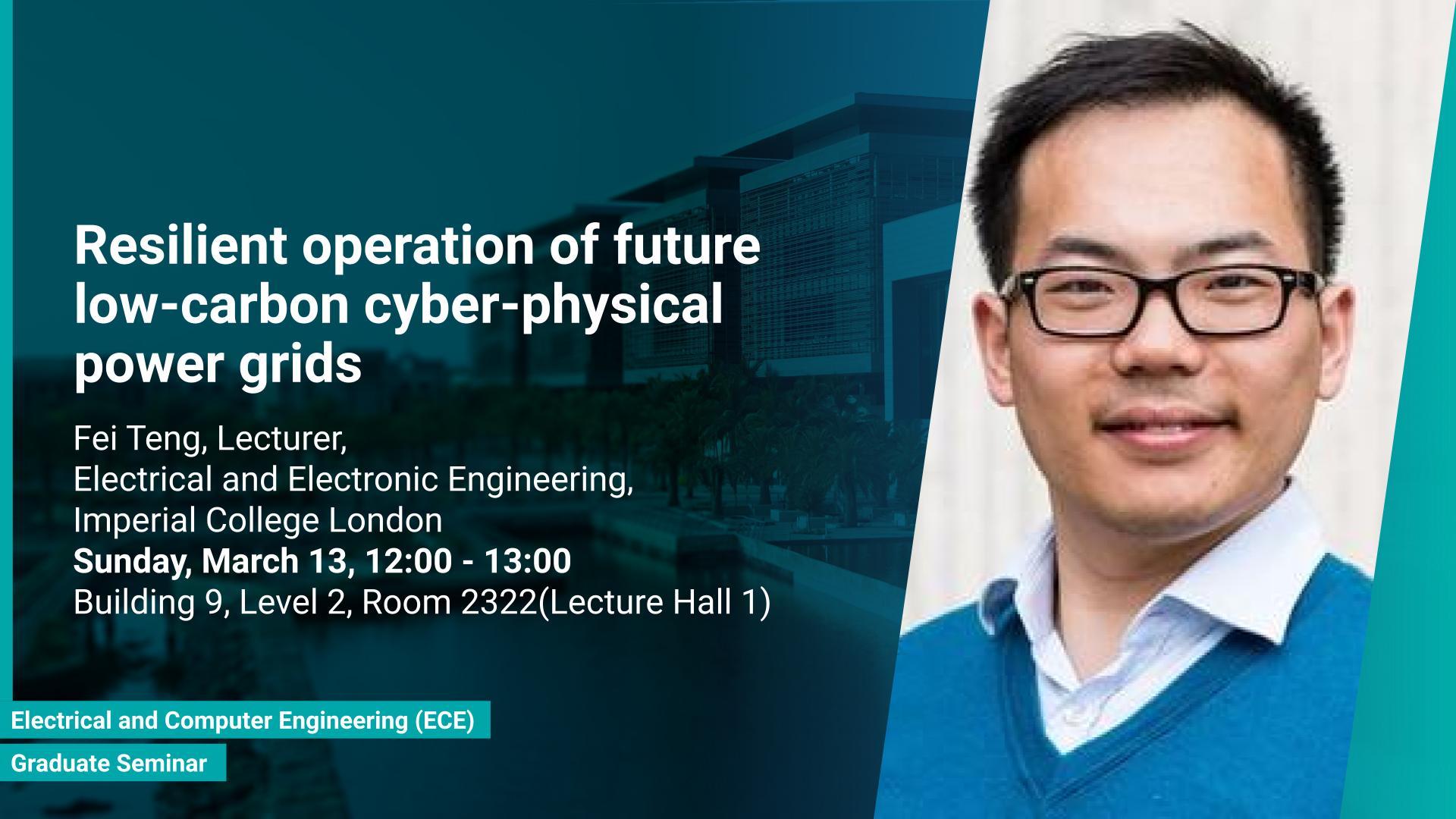Abstract
Intelligent monitoring, communication and control have been widely used in power systems to facilitate the cost-effective integration of renewable energy to achieve decarbonization. The future power system is developing towards an integrated cyber-physical system. However, large-scale integration of information systems also brings new security risks, which greatly challenges the traditional power system operation strategy. This talk will discuss the efficient and safe operation of the future low-carbon power system with a focus on the resilience enhancement through a multi-layer defense strategy against cyber failures or attacks. In particular, this talk will introduce an advanced attack detection strategy that blends data and physics and a centralised-to-decentralised transition framework to respond to cyber failures/attacks.
Brief Biography
Dr. Teng graduated with a BEng from Beihang University, China in 2009 and obtained Ph.D. from Imperial College London in 2015. He worked as a Research Associate at Imperial from 2015 to 2017 and as an Assistant Professor in Smart Grids at PERSEE, MINES ParisTech, France in 2017.
He is currently the education director of Energy Futures Lab and a lecturer in the Department of Electrical and Electronic Engineering, Imperial College London. He is also serving as the deputy director of Imperial - Tsinghua Joint Research Centre for Intelligent Power and Energy Systems and holding visiting positions at MINES ParisTech, France and PolyU, HongKong.
His research focuses on the efficient and resilient operation of future high IBG-penetrated cyber-physical energy systems. He has authored more than 80 scientific publications in leading power system journals and conferences and been involved in over £3 million research grants in the last five years from EPSRC, ESRC, Innovate UK, Royal Society, EDF Energy, and National Grid ESO.

